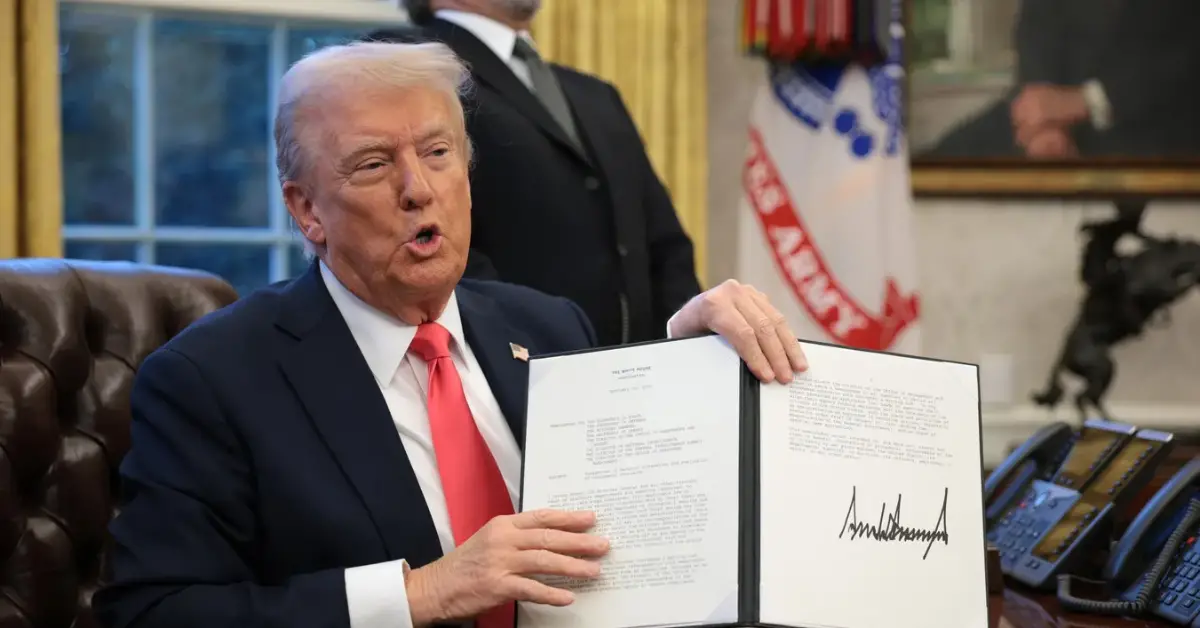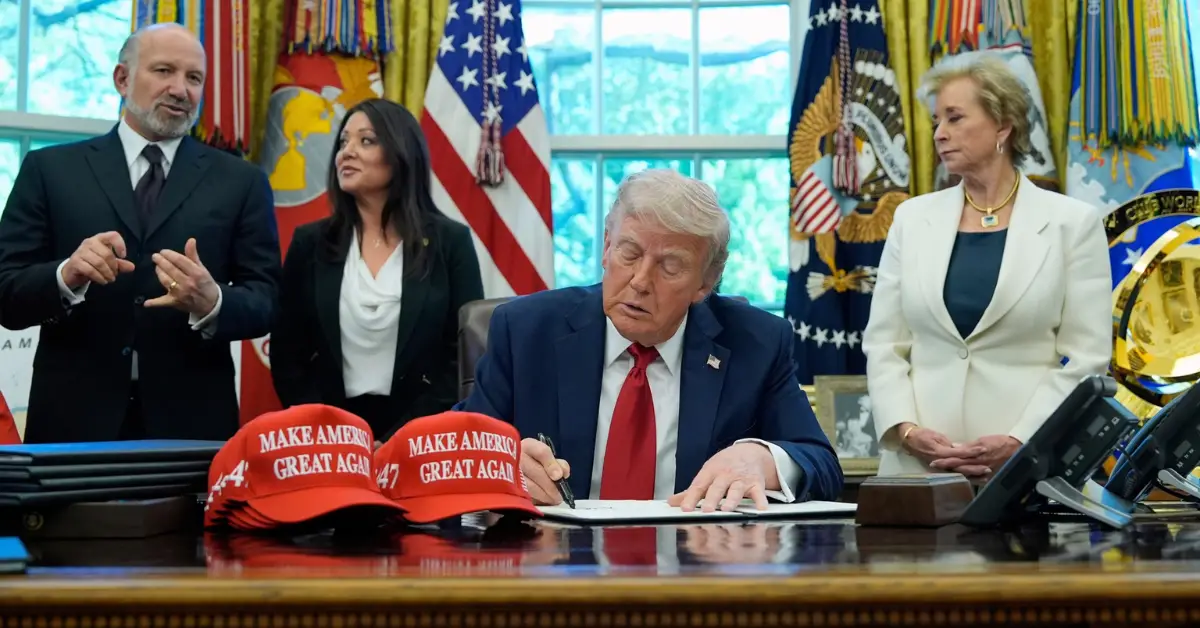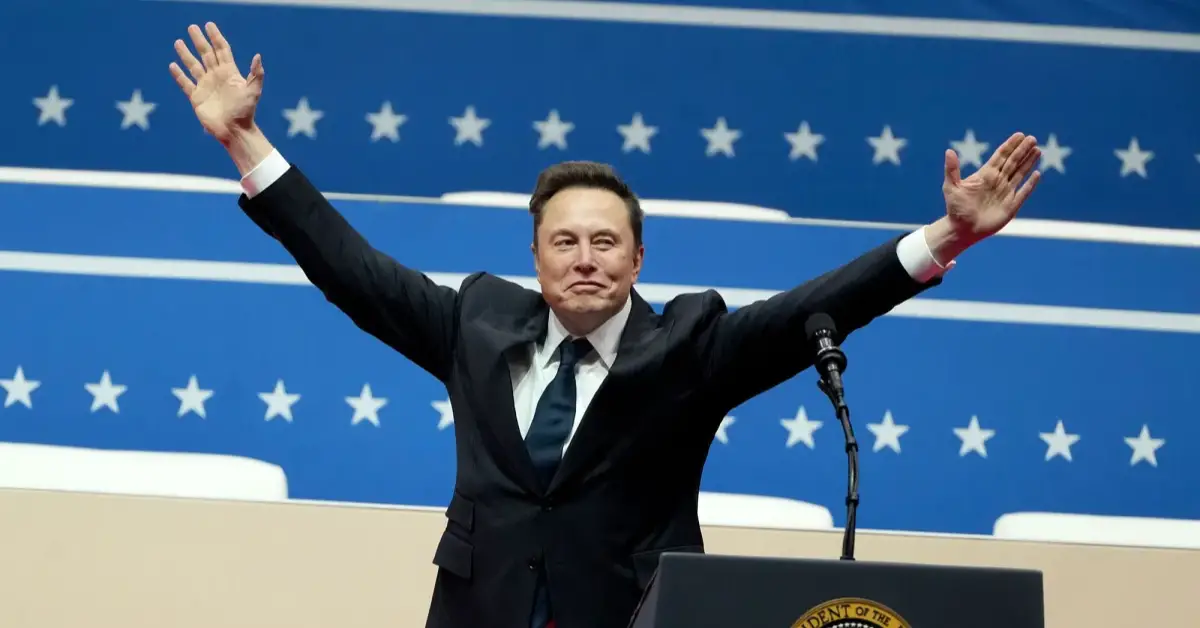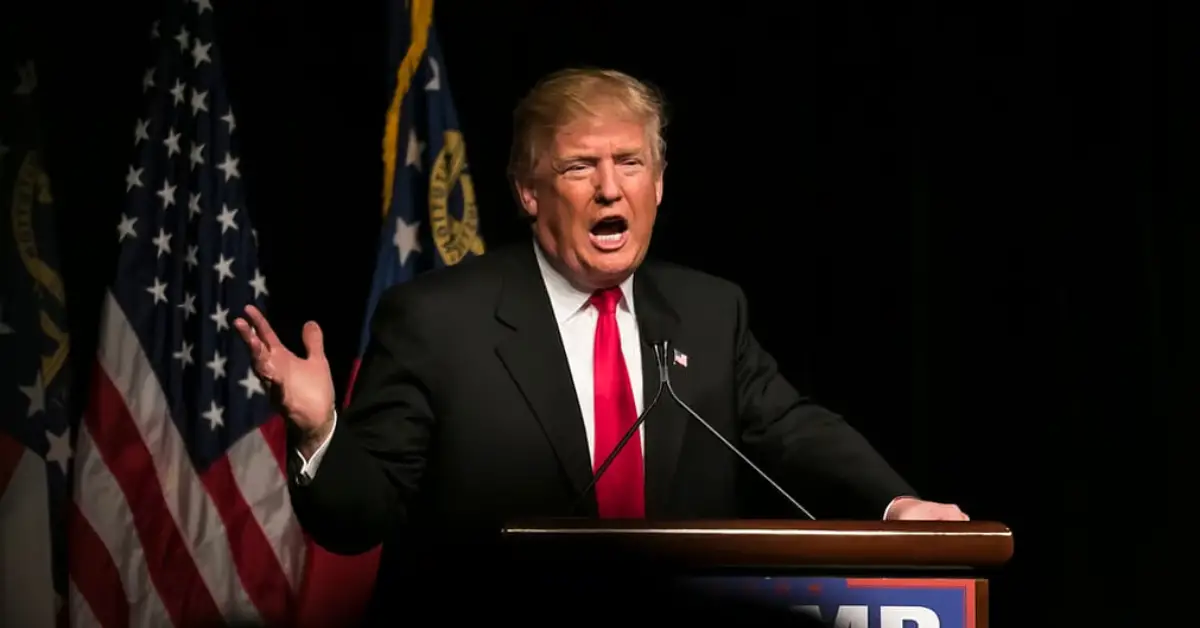The Department of Government Efficiency (DOGE), led by Elon Musk, has recently deactivated nearly half a million government credit cards, marking a significant step in the administration’s efforts to curb government spending.
The decision is part of a broader initiative to reduce inefficiencies within federal agencies and cut down on wasteful spending, which has long been a target for President Donald Trump since he returned to office in January. DOGE’s primary task is to audit and eliminate unneeded government credit cards, an effort that has already made an impact, but with more work to be done.
The DOGE task force was established through an executive order signed by President Trump earlier this year. It aims to reduce the federal workforce and eliminate unnecessary government expenses. This push includes reducing excessive spending within federal agencies, and one of its primary targets is the government credit card system. As of now, more than 470,000 credit cards have been deactivated in a bid to streamline government spending.
What You Need to Know
In a recent update shared on X (formerly Twitter), the social media platform owned by Elon Musk, DOGE revealed that it had successfully deactivated around 470,000 government credit cards. Musk himself has been vocal about the ongoing efforts and has praised the task force’s progress, though he also pointed out that there is still much more to do.
The message posted by DOGE stated: “Credit Card Update! The program to audit unused/unneeded credit cards has been expanded to 30 agencies. After 7 weeks, ~470k cards have been deactivated. As a reminder, at the start of the audit, there were ~4.6M active cards/accounts, so still more work to do.” This update highlights the scale of the effort, with 4.6 million government credit cards being issued to federal employees, a system that accumulated approximately $40 billion in spending last year alone.
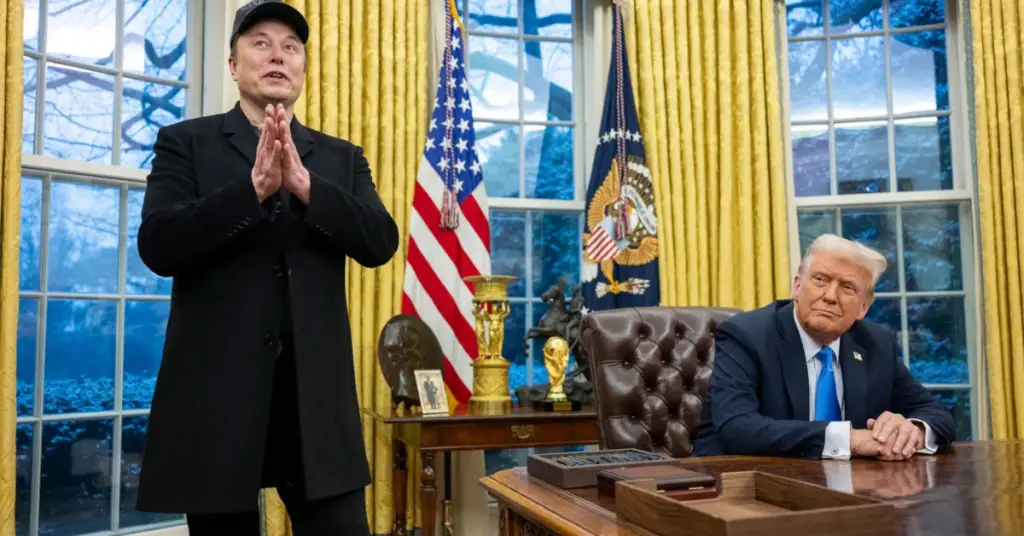
In March, DOGE had already made progress by suspending 200,000 unneeded credit cards across 16 federal agencies. The agency plans to expand its audit in the coming months, with the goal of deactivating even more unnecessary cards and cutting down on wasteful spending. This initiative is just one of several measures implemented to tighten control over federal expenditures.
However, the credit card audit and deactivation program has had some unintended consequences. For example, when cuts were made to the Transportation Security Administration’s (TSA) credit cards in March, officials were temporarily unable to purchase necessary equipment and supplies for bomb-sniffing dog units. This incident highlights a critical issue: while reducing spending is important, the cuts can sometimes interfere with essential operations, particularly in agencies that rely on credit cards for emergency purchases or immediate needs.
What People Are Saying
Elon Musk, who heads the Department of Government Efficiency, took to X to discuss the scope of the issue. He wrote: “Twice as many credit cards are issued and active than the total number of government employees! Crazy.” Musk’s statement underscores the staggering number of credit cards that are in circulation across the federal government. For every government employee, there are more than two credit cards, many of which are used for operational expenses, travel, and emergency purchases.
The massive number of credit cards has led to concerns among experts about the true cost of such a system. Michael Ryan, a finance expert and the founder of MichaelRyanMoney.com, explained to Newsweek that these government-issued credit cards are not like typical consumer credit cards. He said, “These aren’t your typical consumer credit cards.
We’re looking at lifelines for federal agencies—cards that keep the lights on, quite literally. Need to book a last-minute flight for a critical meeting? There’s a card for that. Emergency maintenance part for a military vehicle? Yep, another card. Office supplies for a research lab working on something that could change the world? You guessed it—another card.”
This perspective sheds light on the complexities surrounding government credit card usage. While reducing unnecessary spending is a noble goal, it is crucial to understand that these cards serve essential purposes, including purchasing supplies for national security and supporting critical government operations. Therefore, cutting too many cards too quickly could potentially disrupt the operations of federal agencies that rely on these cards for day-to-day tasks.
Michael Ryan’s concerns echo the sentiment that while the program aims to save taxpayers money, the consequences of overzealous cuts could be more costly in the long run. For example, if a federal agency cannot purchase a critical part for a military vehicle or secure a last-minute flight for a diplomatic mission, the effects could be detrimental to national security or international relations. The challenge for DOGE and the Trump administration will be finding a balance between cutting waste and maintaining the effectiveness of government agencies.
What’s Next?
Despite the challenges, DOGE has confirmed that it will continue with its credit card audit program, expanding its scope to include additional agencies in the next phase of the initiative. The task force has expressed its commitment to reducing unnecessary spending and improving efficiency across the federal government, but it remains cautious about the potential impacts on federal operations.
In the coming weeks, DOGE will likely continue to deactivate government credit cards in a measured approach, ensuring that only the truly unnecessary cards are removed from circulation. However, the task force will also need to monitor the effects of these cuts on agency operations and make adjustments where needed. The goal is to streamline the system without hampering the ability of federal agencies to perform their essential functions.
Elon Musk has been vocal about his vision for DOGE, emphasizing that the task force will continue to target inefficiency and waste within the federal government. His leadership has already led to significant progress, but there are still many challenges ahead. As DOGE moves forward with its efforts, it will be crucial to strike the right balance between reducing costs and maintaining the essential services provided by government agencies.
Disclaimer: This article has been meticulously fact-checked by our team to ensure accuracy and uphold transparency. We strive to deliver trustworthy and dependable content to our readers.

